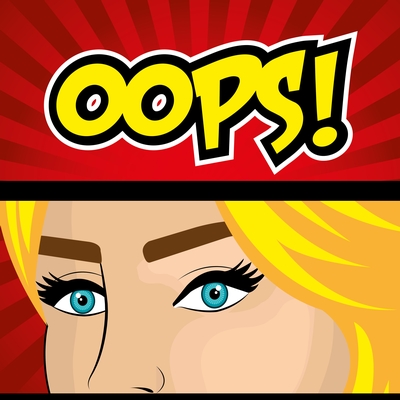Are you ever guilty of writing with undue care and attention? If you didn’t spot the clunker in the preceding sentence, prop your eyes open and attend!
We think we know the language and may even make our living by writing and editing, but the ways to slip up are infinite, providing sport for many readers. I have seen the “undue care and attention” bit more than once. Here’s an example from the StarPhoenix, Saskatoon’s daily newspaper: “The driver got a ticket for driving with undue care and attention, she said” (July 16, 2015). Here, we don’t know if the error was the speaker’s or the writer’s. If it was the speaker’s, should the writer (reporter or editor) have corrected it to the standard legal phrase “driving without due care and attention”?
Sometimes a writing error is a matter of absent-mindedly conflating two phrases into one: “‘I don’t think that all the haters and the critics know how many favours that they’ve done for us,’ he told the Canadian Press” (Walrus, April 2015).
A very common usage is the logical error of using underestimated when overestimated is called for. “Edmonton used to be the City of Champions … Now along comes Connor McDavid, the newest saviour, whose arrival can’t be underestimated” (Globe and Mail, June 20, 2015). “It’s a girl! Frivolity aside, Charlotte’s status as a second royal child cannot be underestimated” (Maclean’s, May 25, 2015). Occurrences of this erroneous usage far outnumber the correct one. Underestimated would work if you wrote something like, “should not be underestimated,” but that would not fit well in either of these contexts.
Can an inanimate object lose control? According to many, many news stories about road accidents, vehicles can. “The SUV in which they were passengers lost control and was struck by an oncoming semi …” (StarPhoenix, Dec. 24, 2009); “the vehicle lost control and rolled into the median ditch three or four times …” (StarPhoenix, July 13, 2011). The second example, of course, contains another infelicity, implying that the vehicle entered the ditch three or four times.
Finally, let’s look at an expression that, to me, is memorable for all the wrong reasons, but has seemingly become so unremarkable that it was printed as a headline across three columns in the StarPhoenix (March 21, 2015): “Preventing mistakes before they happen.”
A worthy goal.
Previous post from Victoria Neufeldt: We’re All Looking for Style.
The Editors’ Weekly is the official blog of Editors Canada. Contact us.

